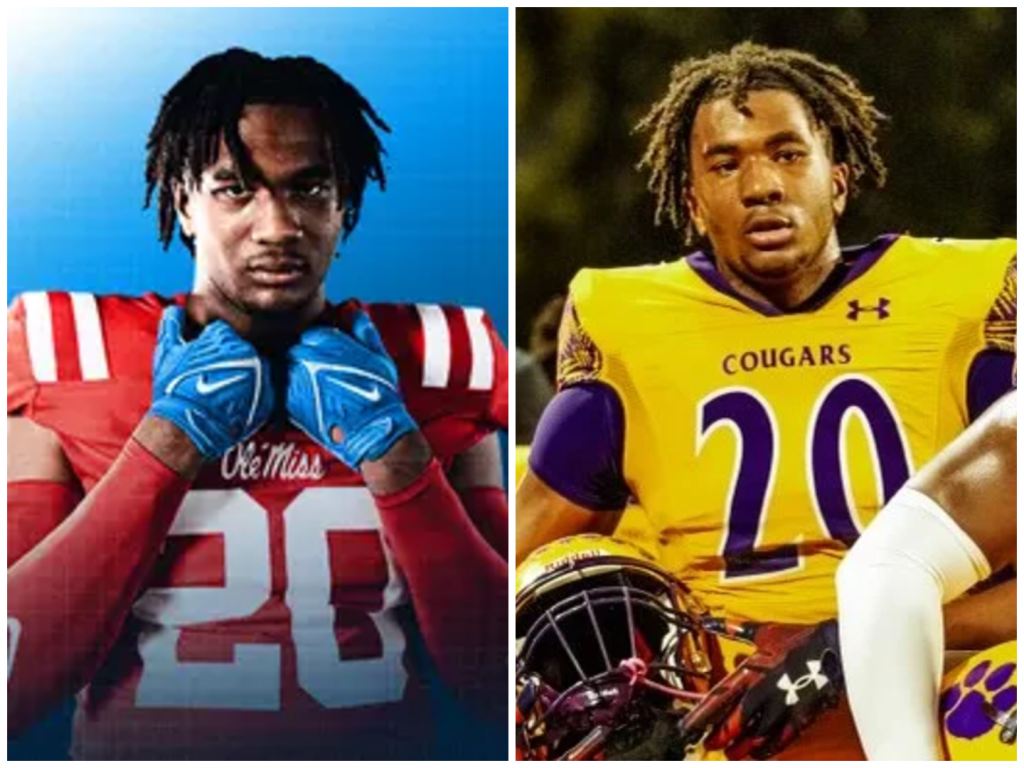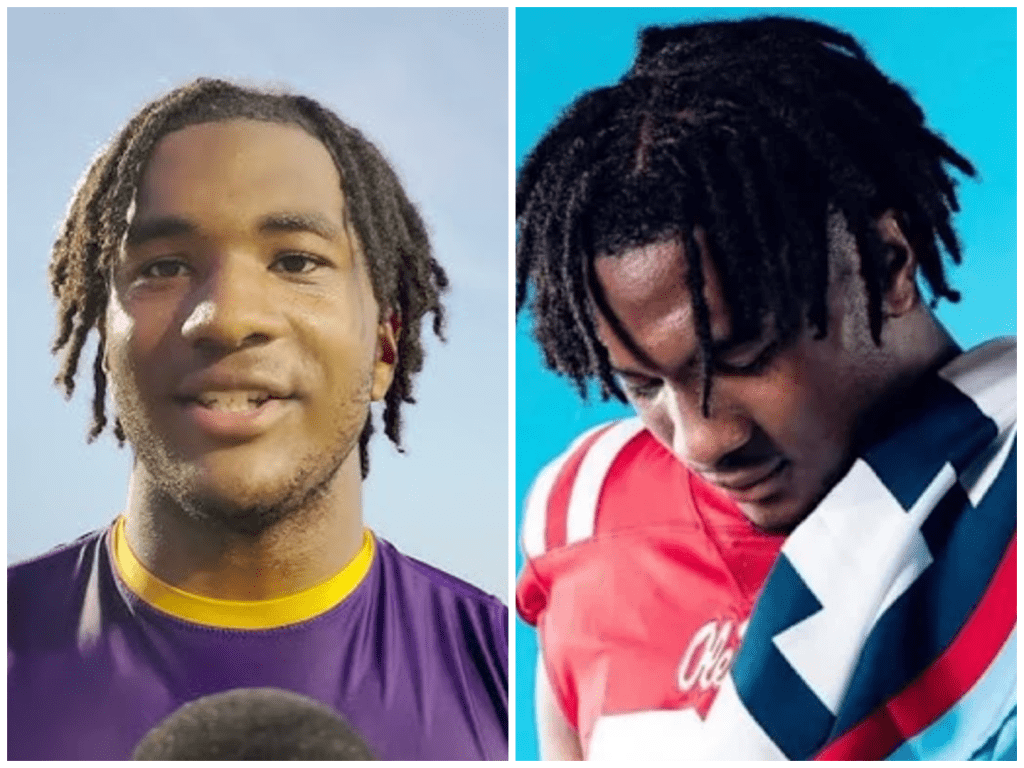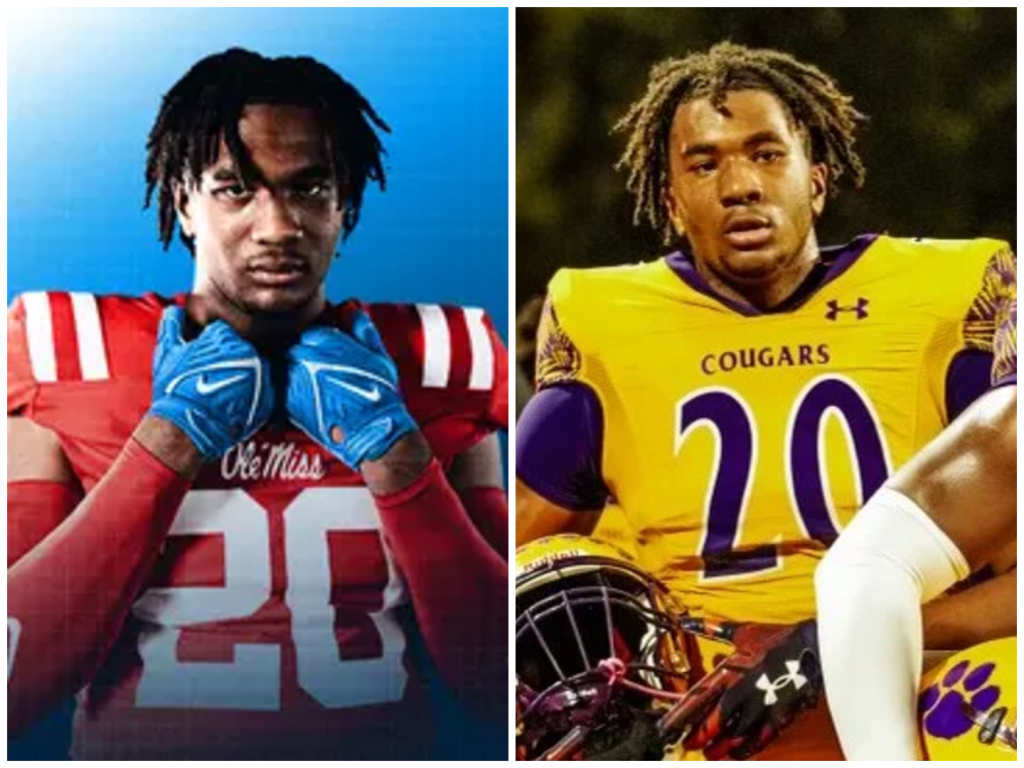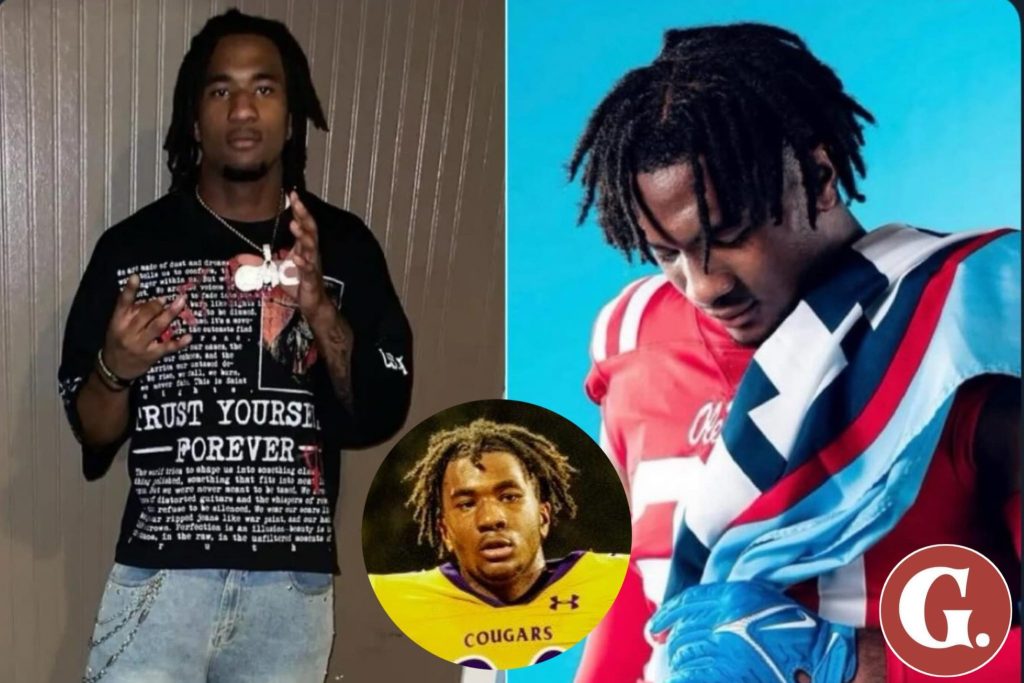The Tragic Story of Corey Adams, a Rising Ole Miss Football Star Who Lost His Life Before Living His Dream
It’s a strange kind of heartbreak, the one that follows when someone so young, so full of promise, is taken from the world in an instant. The kind of heartbreak that doesn’t come with explanations, only questions. And this past weekend, that grief washed over the Ole Miss community, the town of Cordova, and every corner of college football, as news broke that Corey Adams—just 18 years old, a freshman football player for the University of Mississippi—was shot and killed at a house party in the Memphis suburb.

It’s one of those stories that makes you sit down and stare at the wall for a few minutes, trying to comprehend how someone who was just getting started is already gone. Corey wasn’t just another recruit. He was the kind of player whose name would’ve made headlines in a few years for touchdowns, not tragedy. A defensive end with size, grit, and heart, he had everything ahead of him—until everything stopped on Saturday night.
According to the Shelby County Sheriff’s Office, Corey was found inside a vehicle near an intersection in Cordova, Tennessee. He had been shot multiple times. Deputies attempted life-saving measures, and soon after, Shelby County Fire personnel arrived. But it was too late. Corey was pronounced dead at the scene.
What makes this loss even more jarring is that it didn’t happen in some far-off, high-crime setting. It was a house party. A celebration. Something normal for any 18-year-old stepping into adulthood, stepping into life. But for Corey, that night turned into the end. And now, instead of celebrating his first fall season as an Ole Miss Rebel, his family is planning a funeral.
The details around the shooting are still unfolding. Authorities say four other men were also shot and transported themselves to nearby hospitals. Thankfully, none of them are in critical condition. But the damage is done. Corey’s gone, and his absence is an echo that will haunt more than just his family. It will be felt in the locker room, in the dorms, on the practice field, and in every heart that rooted for him to succeed.

There’s something about young athletes that draws people in. Maybe it’s the rawness of their ambition, the way they carry dreams bigger than their bodies, or how they believe—without a doubt—that greatness is within reach. Corey Adams was one of those kids. A spark. A force. And he was just getting started. That’s what makes this story so hard to tell.
You think about his coaches. About the teammates who probably saw him just hours earlier, laughing, sweating it out in training, talking trash, dreaming big. You think about the phone call his family must’ve received. The kind that no parent should ever get. You think about how life can be so unfair, and you wonder how many more Coreys we’ll lose before something changes.
Ole Miss hasn’t released an official statement yet, but tributes are already pouring in on social media. Players, fans, friends, and strangers are posting photos of Corey in his red and blue jersey, writing notes about how kind he was, how determined, how full of potential. One post simply read: “We lost one of our own. Rest easy, Corey. You deserved more time.”
It’s true—he did.
What’s even harder to digest is that Corey’s story will now be frozen in time. He won’t get to graduate. He won’t walk onto the field for his first SEC game. He won’t hear the crowd cheer after a sack, or pose for victory photos, or hold up a diploma in front of his proud family. All of that is gone, just like that.
And yet, there’s something powerful in remembering him—not just as a victim, but as a young man who made it to the dream, even if only briefly. He earned his spot at Ole Miss. He wore the uniform. He was part of a brotherhood. For some, that might seem like a small consolation. But for anyone who knows what it takes to get to that level, it means something.

Still, the bigger picture looms. A promising athlete is dead. A family is grieving. And a community is searching for answers. The Memphis area has seen its share of violence, but each incident like this one tears another hole in the fabric of belief that we can be safe, that our kids can chase dreams without looking over their shoulders.
No one deserves to be taken this way, especially not someone who had just begun to carve out their story. Corey Adams should be preparing for fall football, learning defensive schemes, joking with teammates during two-a-days, maybe texting his mom that he’s okay but tired. Instead, his name is in the news for all the wrong reasons.
What we can do now is remember him—not for how he died, but for how he lived. For the smile he brought to those around him. For the plays he made in high school that earned him a shot at SEC football. For the hope he carried, and for the hearts he touched.
We talk so much about what these athletes might become—what draft round, what stats, what records. But Corey’s story reminds us to appreciate who they are right now. At 18, he was already a fighter, a student, a son, a teammate. And in the short time he had, he made it to a place many never reach.
His loss should make us pause. To think about safety. About youth. About how fragile life really is. And maybe, just maybe, it should push us to do better—to create spaces where young people like Corey can live out their dreams without fear of becoming another tragic headline.
Rest in peace, Corey Adams. You were more than a football player. You were a light. And even though your story ended far too soon, your memory will live on—in every teammate, every fan, and every person who dares to dream just like you did.


